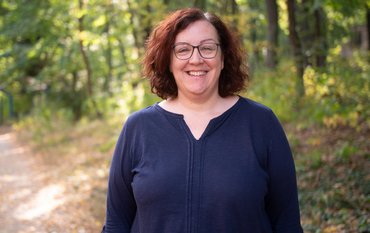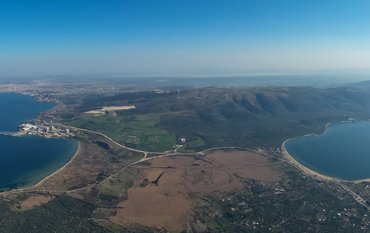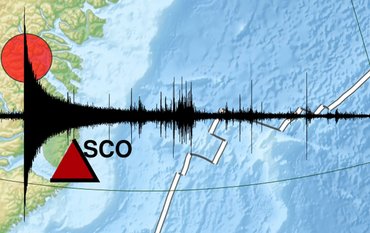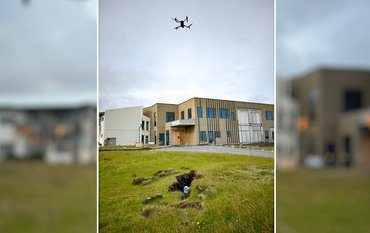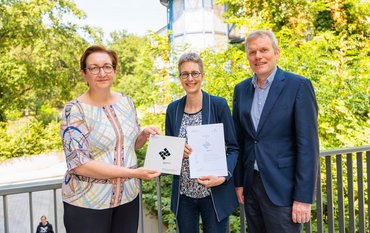10.02.2017: He was the first German in space – and he graduated in remote sensing at the Telegrafenberg in Potsdam. On 13 February 2017, Sigmund Jähn celebrates his 80th birthday: Congratulations!
It was the time when manned space travel was still something extraordinary. Particularly this one: From 26 August to 3 September 1978 Sigmund Jähn, citizen of the German Democratic Republic (GDR), flew into space. He became the first German in the Earth's orbit. Aboard the Soviet space station „Saljut-6“ he conducted experiments in material science and took multispectral images using the MKF 6 camera. This was built to capture light at specific frequencies and was, thus, suitable for remote sensing, e.g. the tracking of geological features on the ground.
”Originally, we had planned to take numerous images of the GDR’s territory”, says Jähn. ” However, the orbital constellation of Saljut-6 was unfavorable when orbiting above the country as it was dark most of the time.” So the cosmonaut mainly took photographs of the Soviet Union and other countries instead.
After a very uncomfortable touch-down – Jähn has been suffering from back problems ever since – he returned to the GDR’s Air Force and became Head of the Center for Cosmic Training. The multispectral images of the MFK 6 were analyzed at the geophysical institute “Zentralinstitut für Physik der Erde (ZIPE)” in Potsdam, one of the cornerstones of the later GFZ German Research Centre for Geosciences. ZIPE’s Director, Heinz Kautzleben, encouraged Jähn to do his doctorate. The thesis was written together with Karl-Heinz Marek on remote sensing and possible applications of the method. ”To be honest, Karl-Heinz Marek did most of the work”, says Jähn. ”Before the space flight, I was a safety commissioner in the Air Force and afterwards I had many activities in public relations“. But still up to today he recalls fruitful discussions with the scientists at ZIPE.
Sigmund Jähn remained with space travel. He later became a consultant for the German Aerospace Center (DLR) and the European Space Agency ESA. In the meantime, he likes to takes a more philosophical view on space travel, says Jähn. ”Before we indulge in our high-flying dreams of human colonies on Mars and other planets we should do all in our power to make sure that our planet Earth remains a place worth living on instead of threatening each other.” (rn)





![[Translate to English:] [Translate to English:] Abror Gafurov von dem Schriftzug "Welcome to Azerbaijan" und den UN und COP Logos](/fileadmin/_processed_/2/5/csm_2024_11_Baku_COP29_Abror_Gafurov_1042faec82.jpeg)


![[Translate to English:] Martin Herold standing in front of the library on the Telegrafenberg](/fileadmin/_processed_/c/d/csm_Martin_Herold_d385ee4dd9.jpeg)
![[Translate to English:] Many people are listening to a presentation in the GFZ lecture hall.](/fileadmin/_processed_/c/a/csm_1_Bild1_hell_b9c0e9f5ed.jpeg)






![[Translate to English:] Both scientists sitting on stools in front of a wall of books in the Telegrafenberg library](/fileadmin/_processed_/6/6/csm_Buiter_Castell_DORA_4_e87cb1ea18.jpeg)
![[Translate to English:] Gruppenbild mit 4 Personen](/fileadmin/_processed_/8/d/csm_20241017_GFZ-Emmerman-Medal-005_web_reinhardtundsommer_21a414fa4a.jpeg)






![[Translate to English:] Ice landscape with five red tents](/fileadmin/_processed_/8/9/csm_Zeltlager_auf_dem_Eis_Urheberin_Jenine_McCutcheon_5ced2d523b.jpeg)


